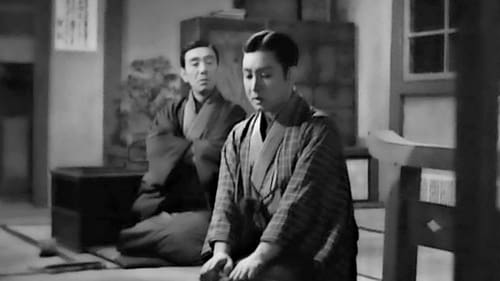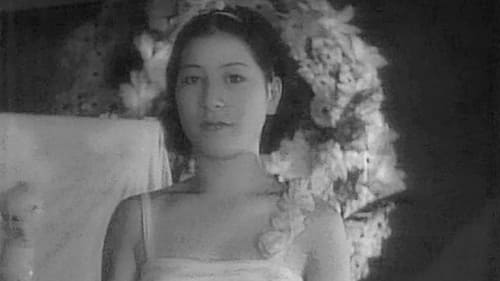Roppa Furukawa
出生 : 1903-08-13, Chiyoda, Tokyo, Japan
死亡 : 1961-01-16

Japanese comedy film.

Japanese comedy film.

Otsuka
Japanese comedy film.

Japanese comedy film released to commemorate the 10th anniversary of Shintoho's founding.

Japanese war film based on the true story of Yoshiko Kawashima, played by actress Miyuki Takakura in her film debut.

Japanese comedy film.

The president learns that the company's biggest stockholder is also a friend of his singing teacher and spies on his movements.

Based on a comic strip by Kaoru Akiyoshi. First in a four part film series.

A new third-class president wins an appointment thanks to his marriage with the former president's daughter.

Yazaemon
Japanese comedy film.

Dr. Amachi
1954 Japanese film starring professional wrestler Rikidozan.

Asahi Shoji's office girl, Aiko Tatebayashi, is a modern girl of Akira herself. The dentist's father has already cleared up his eldest daughter Keiko to Mizukami, but this time Aiko's turn and her sister's wedding greeting card are handy to add a request for the color of her sister's son. However, Aiko, who wants to be herself, uses the help of her friend, private detective Nobuko Migishi, to break through the behavior of the matchmaker, Mrs. Yamaguchi, who is a matchmaker. However, Nobuko's mistress Rokuro Kojima has become sloppy these days, so when Aiko investigated this time, it was found that the cause was Kojima's best friend Hiroshi Minamimura. Aiko was completely indignant at Minamimura's rude attitude of saying what she thought. In the mouth of Mrs. Yamaguchi's match, Mr. Fumio Kaki, the sales manager, is the best candidate.

Japanese musical.

Horiuchi
Fourth installment in the "Achako's Notebook of Youth" series.

Oishi Kuranosuke
A comedic retelling of the legend of the loyal 47 ronin.

Japanese comedy film.

Buntaro, the president of a food trading company got tired of the day-to-day routine of life. The new secretary, Nobuko, suggested her "shacho-san" (the president) run away from the job. Nobuko took Buntaro to her home and introduced him to her own family as friend, "Sachio-san"...

Japanese comedy film.

Japanese comedy film.

A bar girl tries to pass her three children, each from a different father, to rural relatives.

A film dealing with the comings and goings of individuals in the immediate postwar period.

Based on the comic by Kaoru Akiyoshi

Based on the comic by Ichio Matsushita

1944 war movie

The Way of Drama unfolds in the world of kabuki in Osaka, but also addresses the politics of popular culture and the rivalry between theatrical styles like those used by amateur actors to dramatise contemporary events.

Rokurota Kurikawa
A 1943 film.

Shunzo Sakai
1942 adaptation of Izumi Kyoka's novel.

Habu Genseki

Okubo Hikozaemon Tadataka
A sentimental tale of the filial love between shogun Iemitsu (matinee idol Hasegawa) and his loyal old retainer Hikoza (comedian Roppa, playing somewhat against type).

A Kajirô Yamamoto directed comedy starring Roppa Furukawa.

Hide-chan (Hideko Takamine) and her family are on a trip to Tokyo. While visiting a fairground, a pickpocket (Kamatari Furukawa) steals the father's wallet. While everyone is trying to hunt down the thief, Hide-chan decides to make the most of it and enjoy her stay, while the thief and his main pursuer (Akira Kishii) play hide-and-seek among the funfair's spectacles and freakshows

Nogawa
An early Tōhō salaryman musical.

Novel
The main focus is on the 5 member band of a small circus as it runs into problems while touring rural Japan. It also pays lots of attention to the two daughters of the aging and irascible ringmaster-circus owner. The high points are the sound (and score) and cinematography featuring a lot of vertiginous panning (appropriate - as high wire trapeze artists are also an important element in the film). A fascinating side-light on 30s Japan.

Based on the comic by Yutaka Asou

The film generally regarded as Japan’s first true musical was also the first film made entirely in-house by the pioneering studio P.C.L., a company founded specifically to take advantage of emergent sound technology. P.C.L. worked in collaboration with a brewer’s firm, Dai Nihon Biru, who met the production costs of the film in full, and whose products are featured in the film in an example of the sophisticated and modern merchandising typical of the studio’s early work. The film is partially set in a beer hall, and its story concerns a beer seller at a train station and her relationship with a music student trying to create a hit song. Director Sotoji Kimura was to become a company stalwart, making such films as Ino and Mon, while actress Sachiko Chiba would emerge the studio’s first real star, appearing in such films as Wife Be Like a Rose.

An early Japanese sound film, notable for being the only Japanese film ever to use the Western Electric Sound System. Contrary to most Western sources that give sole directing credit to Eizo Tanaka, it was actually co-directed by six different directors, Tanaka, Kazue Kimura, Kazuo Takimura, Ryoji Mikami and Hidekuni Ouchi.










